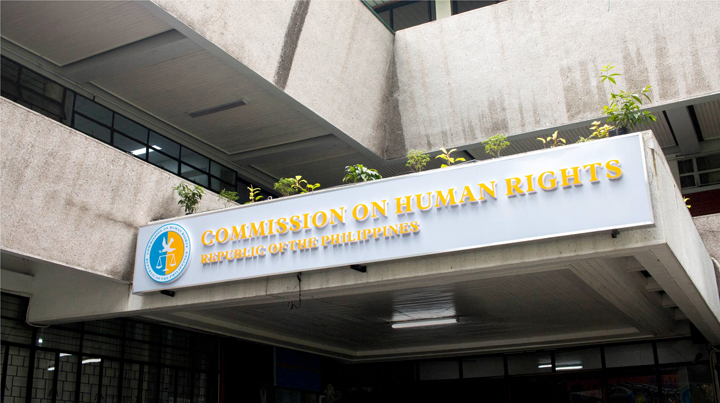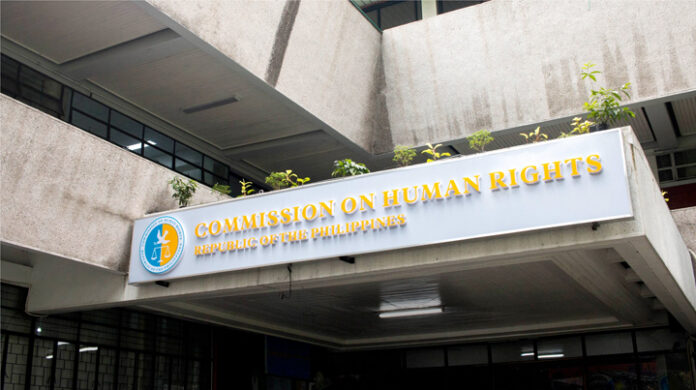
Environmental and human rights groups urged the Commission on Human Rights (CHR) to expedite the issuance of a resolution declaring 47 firms, including Shell, accountable for human rights harms due to climate impacts.
Once released, they said the CHR resolution can be used alongside the Dutch ruling as benchmarks to craft climate litigations against Shell and other carbon majors, such as Exxon, Total, and Chevron, in the Philippines and abroad.
The district court in The Hague ruled last week that Shell must reduce its carbon emissions by 45 percent by 2030. Judge Larisa Alwin said in the verdict that Anglo-Dutch multinational Shell has an “enormous CO2 emission for which it is responsible.”
Greenpeace Campaigner Virginia Benosa-Llorin said the Dutch court ruling brings the groups a step closer to attaining climate justice for Filipinos “who are at the receiving end of injustices arising from decades of fossil fuel addiction.”
Von Hernandez, global coordinator for Break Free From Plastic, is hoping that the CHR will take this as a cue to release its long-awaited resolution. “At a time when our people are already experiencing the escalating impacts of climate change, further inaction and delay on the part of the CHR effectively translate to condoning the human rights violations being committed on millions of Filipino by the fossil fuel industry.”
In 2019, reports quoted CHR Commissioner Roberto Cadiz who said “carbon majors” could be found legally and morally liable for human rights harms to Filipinos resulting from climate change. CHR was expected to have released a resolution in August last year. Greenpeace Philippines, Ecowaste Coalition, Philippine Rural Reconstruction Movement, Philippine Movement for Climate Justice, Sentro ng Nagkakaisa at Progresibong Manggagawa, PhilRights, and Hernandez are among the petitioners to the Philippine Climate Change and Human Rights Inquiry.
Shell’s carbon-neutral plan
When asked for comment on how the court ruling would affect Shell’s business in the Philippines, Pilipinas Shell Petroleum Corp. external relations head Cesar Abaricia said the company is supportive of its parent firm’s goal which is to reduce its net carbon footprint compared to a 2016 baseline by 20 percent by 2030, 45 percent by 2035 and 100 percent by 2050.
“Shell has its plan to become carbon-neutral by 2050. To help that ambition, we have been building our facilities with inverter-type equipment. Our Batangas import facility is utilizing 100-percent green energy. Most of our retail sites are all solar-panel powered. We have effectively laid down the foundations for a resilient, adaptive, and future-ready organization,” he said.
The Shell group said it is investing billions of dollars in low-carbon energy, including electric vehicle charging, hydrogen, renewables and biofuels, to scale up its new energy businesses even more quickly.
“Urgent action is needed on climate change which is why we have accelerated our efforts to become a net-zero emissions energy company by 2050, in step with society, with short-term targets to track our progress. We will continue to focus on these efforts and fully expect to appeal [the] disappointing court decision.”
The Asian People’s Movement on Debt and Development and the Asia Energy Network said the Dutch court ruling serves as a warning to Asia’s “dirty companies” — finance, construction, and energy firms that have played major roles in the perpetuation and growth of fossil fuel industries in the region.
“Five of these companies — Mizuho, ICBC, MUFG, SMBC Group, and Bank of China, most of which are set to hold their shareholders’ meetings this June — rank among the biggest institutions that have been financing what is now considered a climate chaos. Their individual investments in projects across the fossil fuel cycle range from $101 billion to $148 billion between 2016 and 2020,” they said.
“The verdict on Shell sets a precedent that inspires us, climate activists from Asia, to intensify our campaign initiatives including litigation and judicial actions to keep compelling these companies to exit the fossil fuels business with clearly-spelled out targets and definite timelines.”
Read full article on BusinessMirror



